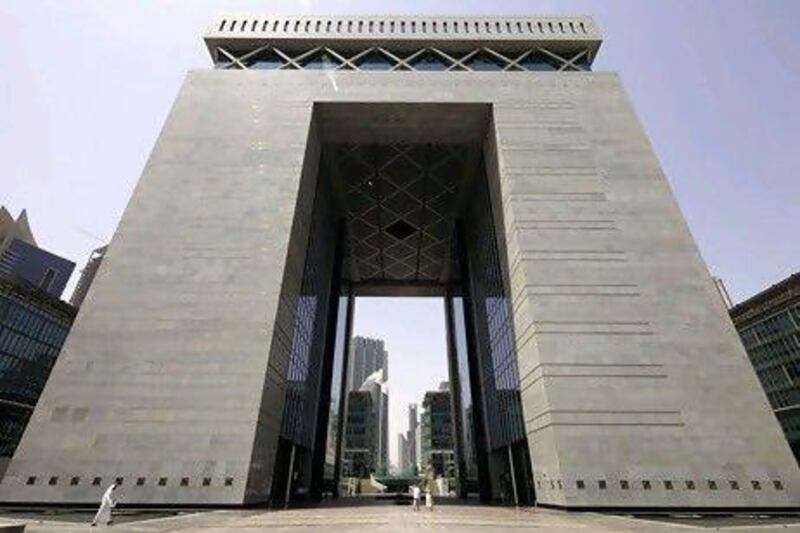The UAE's financial community has warned that competition from Qatar may create a powerful rival to the Dubai International Financial Centre (DIFC) if market law is not developed further.
New market regulations for onshore fund management from the Securities and Commodities Authority (SCA), encompassing all funds marketed outside of the DIFC's physical boundaries, have substantially increased the regulatory burden on fund managers.
The new regime is unpopular among firms based in Dubai, with some saying financial services companies outside the region may seek to establish themselves elsewhere. In the meantime, the nearby Qatar Financial Centre (QFC) appears increasingly competitive.
While the DIFC had initially been the gateway to the Emirates - symbolised most neatly by the Gate building at its centre - new regulations were ensuring that gateway was "closing", said Aryan Schoorl, the legal director for finance and projects at DLA Piper, the law firm. "The DIFC no longer gives you a ticket into the UAE. We all accepted there was a grey area and we anticipated things would be crystallised."
Instead, the DIFC is becoming a more specialised hub for financial and legal services rather a generic entry point - forcing banks to rethink the strategies that initially brought them to Dubai. Mr Schoorl added that regulators should aim to provide more clarity on the issue of overlapping jurisdictions.
The SCA's new investment funds regulation have not just made it more difficult for financial firms to operate from the DIFC but throughout the UAE, said Jeff Singer, the chief executive of the DIFC Authority. "The new rules have not made the UAE more competitive," he said. "When there's confusion in the market, businesses typically will avoid uncertainty … not only those coming into Dubai but also to the UAE. If there's confusion, then businesses will, of course, continue but they are more likely to operate from their home market."
Other factors, including Dubai's quality of living and amenities including airports, hospitals, schools and infrastructure, will also help the emirate to retain its edge, Mr Singer added. "The DIFC is the only financial centre based on English common law and has a regulator based on UK regulation," he said. Regulations and laws made in the DIFC have been upheld in other jurisdictions around the world.
"Not only do we have the infrastructure but it's been tested and proved," said Mr Singer.
The DIFC houses more than 900 firms, of which more than 333 are regulated financial firms.
That compares with 135 firms at the QFC, around 70 of which are regulated financial firms, said Shashank Srivastava, the chief executive of the QFC Authority, who was also involved in establishing the DIFC.
Mr Srivastava avoided explicitly stating that the QFC was a competitor to Dubai, saying cooperation and development meant asset managers would have deeper markets to tap into.
"The size of the pie will grow, if more parts of the world and our region have the appropriate legal, regulatory and tax structures in place," he said.
"If Abu Dhabi has them, if Bahrain has them, if Kuwait has them, more and more it has a cumulative impact."
But part of Qatar's pitch to fund managers is that the "grey area" between where the DIFC ends and the UAE begins does not apply to Doha, where all financial firms fall to a single regulator.
"The QFC is not an offshore centre or free trade zone, but an integral part of Qatar's financial system," said Abdulrahman Ahmad Al Shaibi, a board member of the QFC Authority, in a speech before hundreds of fund managers on Monday.
Qatar has tried to tempt firms with seed capital of between US$10 million (Dh36.7m) to $100m to fund managers who wish to establish themselves in the QFC, with one caveat - the back-office functions can be handled wherever is cheapest but the fund managers should be based in Doha.
Qatar has also enlisted some of the banks it invests in for asset management joint ventures, such as Credit Suisse and Barclays, alongside EFG Hermes Qatar.





